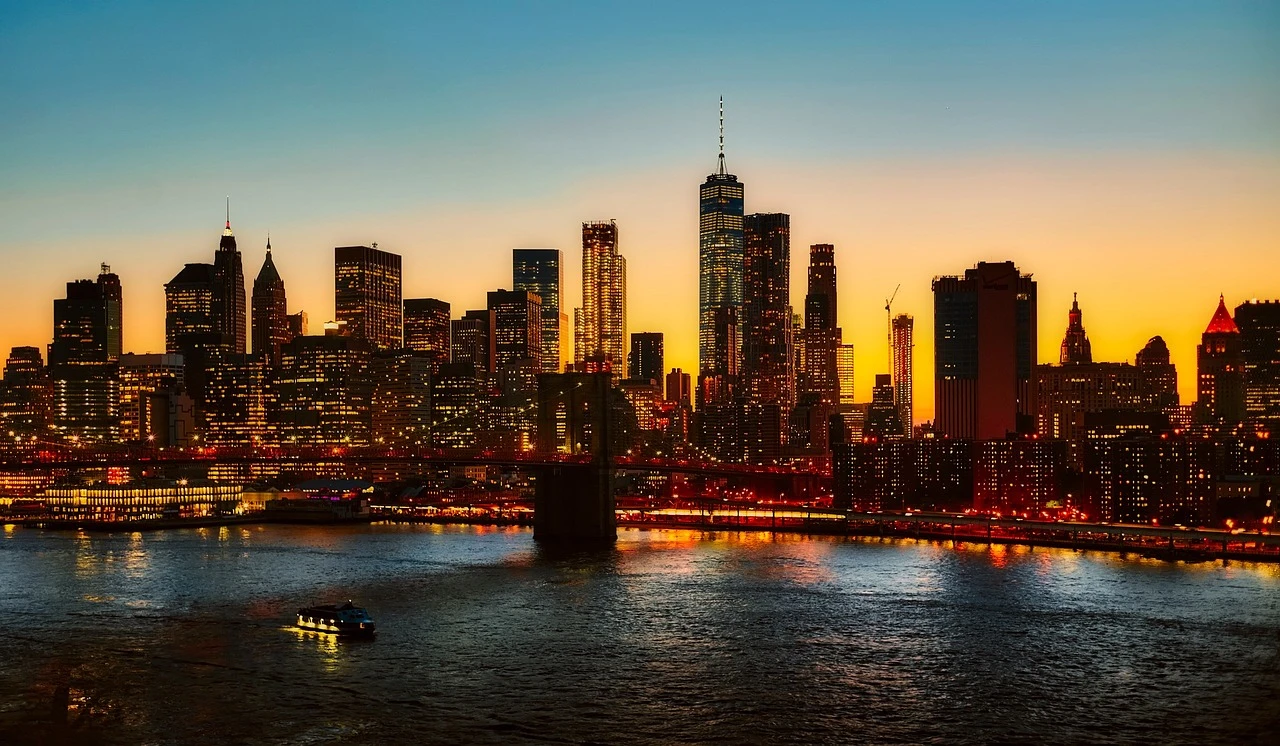The New York Gaming Facility Location Board (NYGFLB) released 353 questions and answers around their request for application (RFA) for casino bids 16 December. Here’s a look at some of the details.
The NYGFLB is tasked with recommending licencees for three downstate casino licences. Bids must be submitted by June 2025. At that point, the board will vet applications and make recommendations to the New York State Gaming Commission (NYSGC).
That agency will issue licences by 31 December 2025. The 94 pages of questions and answers followed a first round of questions that were submitted last year after the board officially released its request for applications (RFA). The initial batch of questions was answered at the end of August.
The latest document didn’t reveal many surprises. But it does offer clarification on a wealth of technical details applicants need to address. The questions ran the gamut, touching on everything from the application process and alcoholic beverage rules to construction and taxes.
Below are some key points from the most recent batch of questions and answers.
Applications and licencing
In the Q&A, the board points out that it is only charged with recommending projects for licencing. The final word on granting licences is the purview of the NYSGC.
The board also addressed several questions on application requirements. For instance, many of the 11 proposed casino projects in and around New York City would be licenced as partnerships or consortiums of casino companies, developers and other entities. The board clarified some application requirements:
- Key owner applications: Information and signatures from anyone with 5% or more ownership are required. Holding companies with a third or more of the shares must be licenced. All officers and directors of the holding company must submit individual licence applications.
- Background investigations: Separate background investigations are required for all key owners and officers.
- Application fee: When it comes to consortiums, and which entity should pay the $1 million (£798,371/€964,350) fee, the board was vague. It wrote that consortiums should “use their best judgment” in determining who pays.
In addition, the board wrote that all applicants must use the authorized Gaming Facility Licence Application on the board’s website. Any currently licenced video gaming or commercial casinos must submit a new application. Individuals or entities with existing video gaming licences must also file a new application. But those with current commercial casino licences can update their original application with any key changes. However, if a higher level application is sought, a new application must be completed.
Current VLT licencees
Because one of the important considerations listed by the state is “speed to market,” two existing racinos, MGM’s Empire City and Genting’s Resorts World New York City, are widely expected to get licenced. Both are racetracks with video lottery terminal (VLT) licences. The expectation is that they would be able to quickly add table games and replace VLTs with slot machines.
However, VLT facilities “must demonstrate that required capital investments necessary for operation have been made to the facility, which shall be equal to or greater than $500 million, prior to the commencement of commercial gaming operations,” according to the board.
VLT licences will be considered expired on the effective date of those licencees’ commercial casino licences.
Taxes
In answering a question about the expected tax rate, the board wrote, “The applicant must assume a 25% tax rate on gross gaming revenue (GGR) on slot machines and a 10% tax rate on gross gaming revenue from table games.”
For comparison, digital sports betting in New York is taxed at 51% of GGR.
Community advisory committees
New York’s gaming law requires Community Advisory Committees (CACs) to be formed in each applicant’s district. These are comprised of state assembly representatives, local officials and leaders of local community groups.
The second round of inquiries addressed how many public hearings must be conducted by each CAC. The answer is at least two. At the completion of the hearings, “It will be up to each CAC member to individually determine if, in the member’s opinion, public support has been evidenced and an application should advance for Board consideration. If a CAC votes to advance an application, such CAC is required by Racing, Pari-Mutuel Wagering and Breeding Law section 1321-d(3)(e)(x) to issue findings establishing public support.”
New York law explains, according to the board’s answers, that each CAC will have “specific appointing authorities.” The gaming commission will determine those authorities. The answers also address what happens in the case of “overlapping appointing authorities” and explains that the gaming commission will provide key information to a CAC member once he or she is appointed. The community committees can set their own schedules as long as they are in line with deadlines outlined in the RFA.
In an answer to a question concerning potential appeals of a CAC recommendation, the board said only that “an applicant may be able to avail itself of potential remedies afforded by the judicial system.” This could open up the possibility of court battles over project recommendations.
Environmental review
The board stated that “applicants should have already commenced an environmental review. If an Applicant has not, an Applicant should take quick action… Please note that environmental review must be completed by the time of the CAC vote or September 30, 2025.”
Some bidders are in process with environment review. Las Vegas Sands in early December got legislative approval for its environmental plan.
Construction requirements
The board fielded several questions addressing the construction of temporary casinos while permanent facilities are being built. A temporary casino is one with “a gaming floor that is not located within the footprint of the final, fully developed gaming floor, requires substantial reconstruction to be incorporated into the final, fully developed gaming floor, or lacks features required to be considered fully operational.”
The board went to say that a gaming floor “may be opened in phases” if the area is within the “footprint of the final, fully developed gaming floor.” Such locations would not be allowed to close or have reconstruction be “fully integrated into the permanent gaming floor.”
Shorter version: temporary facilities are not considered “phased construction.” When a permanent facility is complete, the gaming commission must sign off on all modifications. In responding to questions about facility size, the gaming board did not specify a number or percentage of total space. Rather, it wrote “that an applicant must provide a schedule of square-footage usage detailing intended usage (i.e., gaming floor, retail, back of house, utilities, etc.).”
In addition, the board explained that applicants must have at least $500 million in capital investments for operation pre-opening.
Interestingly, the board offered this guidance when asked the minimum percentage of the completed slot floor should be occupied by “domestically manufactured” machines: “Whenever possible, domestically manufactured slot machines should be acquired.”
Alcohol policy
Several questioners asked about the requirements for alcoholic beverages. The board responded that current New York laws for casinos and racinos will apply to the new casinos. The law outlines limits on complimentary drinks (no more than two delivered to one patron at a time); no open bar/unlimited drinks for a set rate other than at private functions; no drinking games or games with alcoholic beverages as prizes; and no serving minors.
Quality jobs
One questioner asked, “RFA Page 30 uses terms including ‘ensure’ and ‘commitments’ in relation to providing the highest number of quality jobs, but does not describe the extent to which any such commitments would be contractually obligated. To the extent such commitments are not contractually obligated, can the Board describe the verification process?”
The board’s answer: “Employment commitments will be a condition of any licence granted, thus subjecting the licencee to remedial action for failure to meet the commitment.”
In addition, the board suggests applicants use the US Department of Commerce’s “Good Jobs Principles.” It also describes how to determine pay ranges for different job classifications.
Diversity
In addition, the board responded to questions about diversity, including outlining that a “proposal must include gender, racial and service-disabled veteran composition of ownership and leadership and other population characteristics.” It also suggested that applicants should make “good-faith efforts” in hiring New York state-certified businesses “owned by minorities, women, and service-disabled veterans.”
The board clarified its requirement of a 30% “utilization goal” for minority and women-owned businesses. This only applies to “pre-opening spend and ongoing capital expenditure.”
The board will also look at diversity in leadership, diversity and inclusion education and policy development and diverse staffing resources in assessing bids.
Jill R. Dorson contributed to this report.

